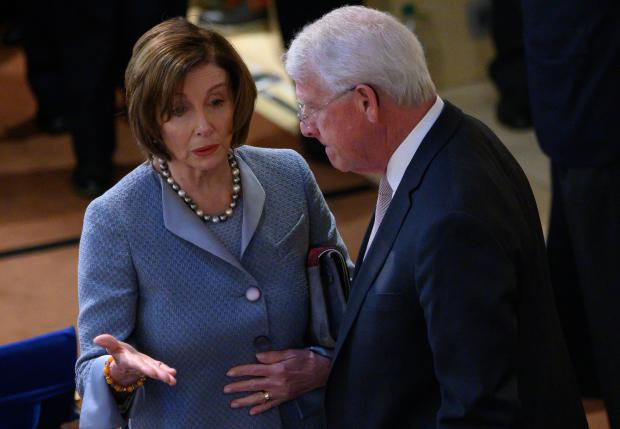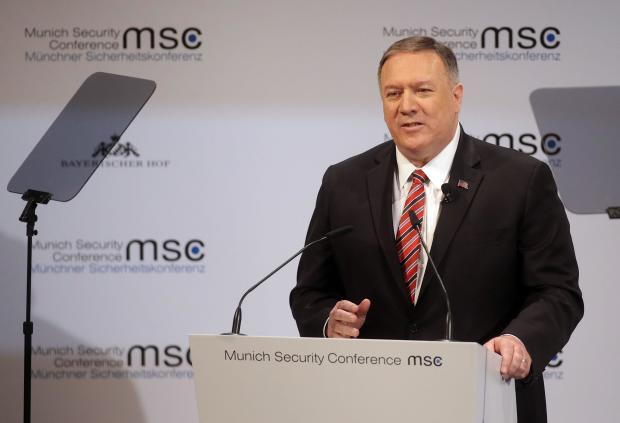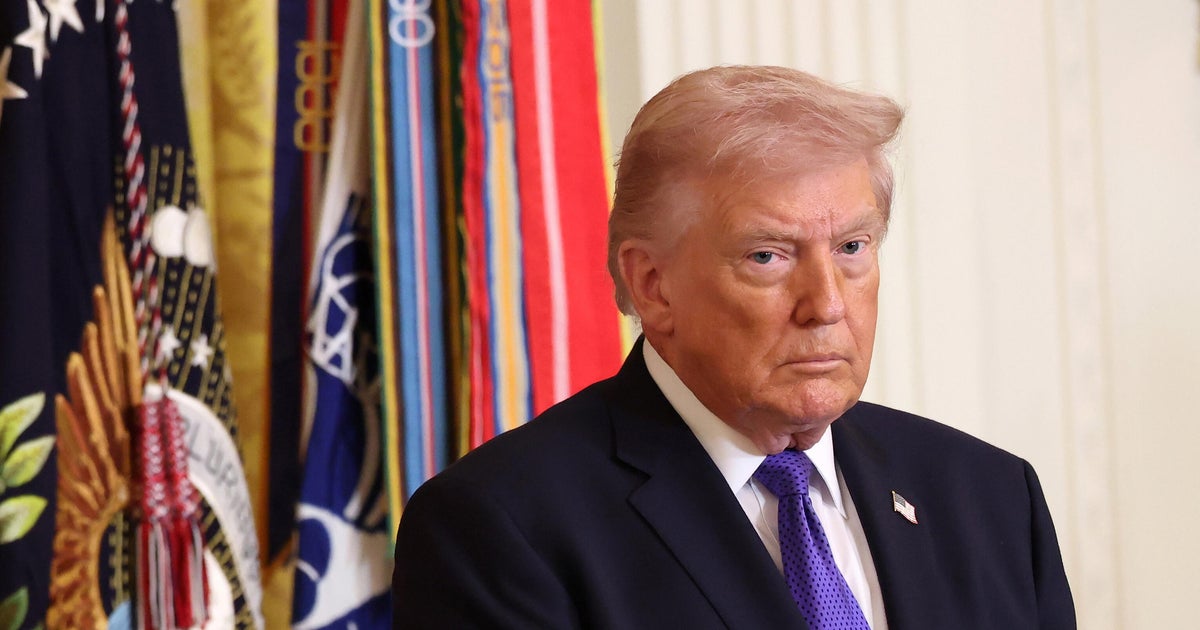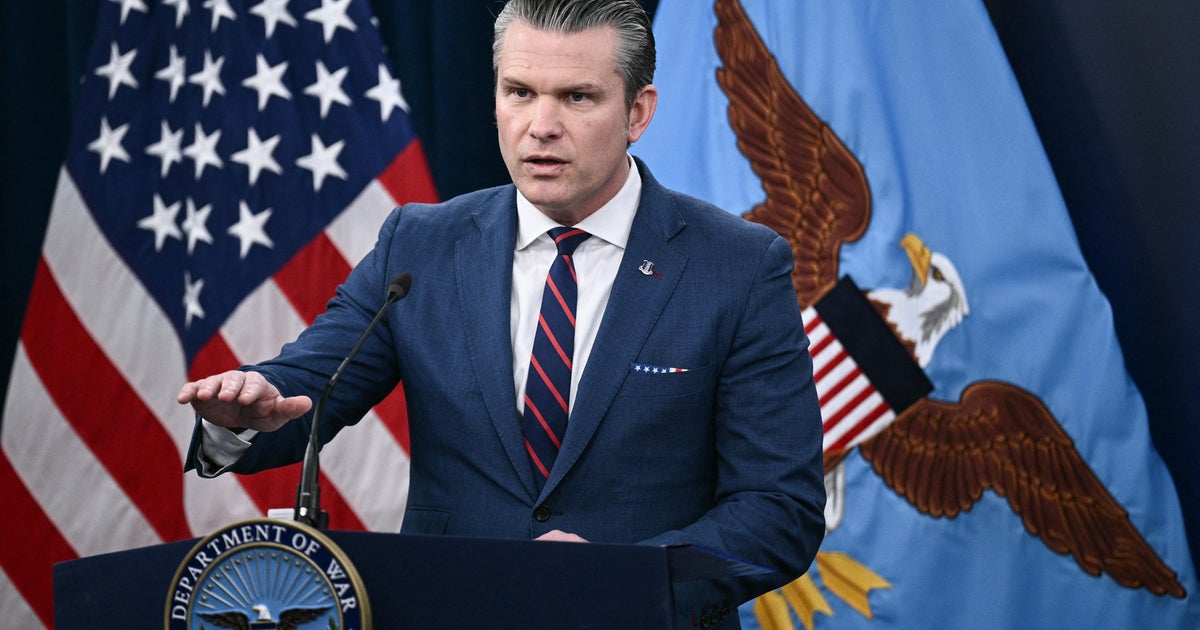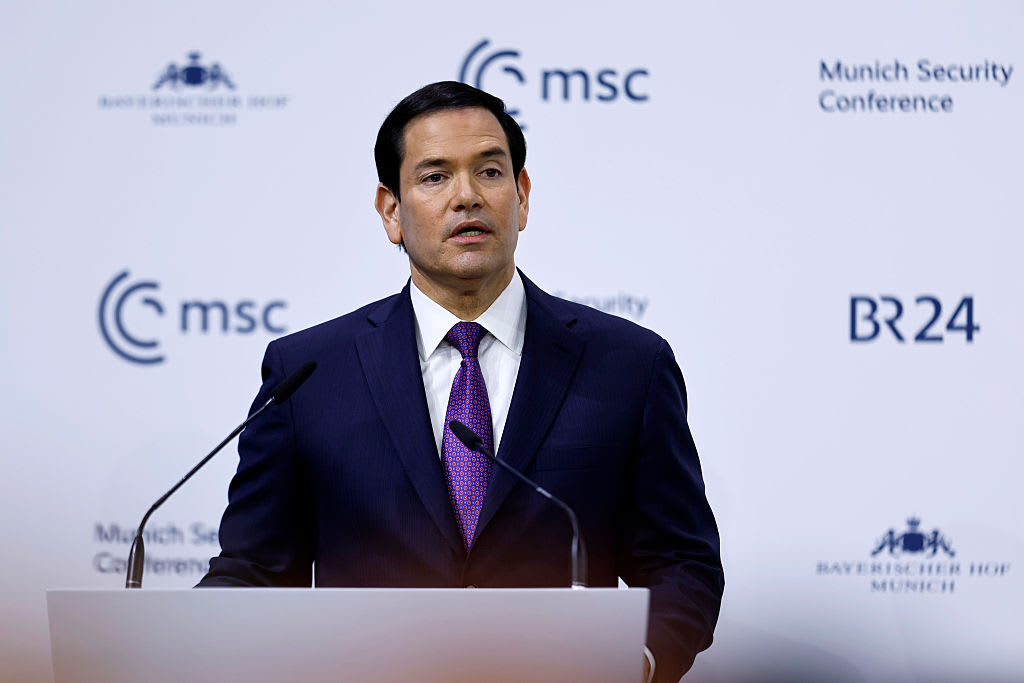U.S. officials sound alarm on China at global security conference
Munich — At a top annual global affairs conference, bipartisan senior U.S. officials warned partner nations about potential security threats from China, focusing in particular on the risks of using Chinese telecommunications company Huawei for emerging 5G technologies. The officials sent this message in both on-stage appearances and private sidebars.
In their public remarks on stage at the three-day Munich Security Conference, top congressional, defense and diplomatic officials said that countries making the financially expedient choice to work with China in the short term could face incalculable security costs in the future. Mostly absent from their warnings was mention of other traditionally top-tier concerns about Russia, Iran and North Korea's nuclear threat.
The seemingly coordinated push came as key U.S. allies, including Germany, Italy, Japan and Canada, determine whether to ban Huawei from their respective build-outs of domestic 5G telecommunications infrastructure. The United Kingdom, which did not have official representation at the conference, announced last month it would allow Huawei a restricted role inside its 5G networks.
The U.S. has issued public warnings about Huawei since at least 2012, pointing to the company's ties to the Chinese Communist Party (CCP) and the possibility that Beijing's military and intelligence agencies could use it to spy on or deny services to countries where it is used. Huawei and the Chinese government have both denied those allegations.
House Speaker Nancy Pelosi, who co-led a delegation of 40 congressional members to the conference, warned in an appearance on Friday against the "Sinification of 5G" and said she agreed, in substance, with the Trump administration's tough stance on Huawei. Adopting Huawei's technology, she said, would be akin to "choosing autocracy over democracy."
"I came to bring the message of House Democrats, in a bipartisan way, we are united on the Huawei issue," Pelosi said in a subsequent press conference. "[N]ational security, economy, and values all come together on the Huawei issue."
Speaking on Saturday, Defense Secretary Mark Esper identified China as the Pentagon's "top concern," citing Huawei's "nefarious activity" and Beijing's "predatory" economic practices amid a broader military expansion.
"Unfortunately, their current behavior leaves great cause for concern," Esper said. "The [People's Republic of China's] growing economic, military, and diplomatic power often manifests itself in ways that are threatening, coercive, and counter to the rules-based international order."
Secretary of State Mike Pompeo said in his remarks on Saturday that Huawei and other Chinese state-backed companies were "Trojan horses for Chinese intelligence" and criticized the CCP for its "newly aggressive turn."
Offstage, senior American officials briefing reporters said U.S. intelligence-sharing with key allies, including Great Britain, would continue with those who elected to use Huawei, pending an "assessment process" to ensure their networks remained secure. The U.S. has an intelligence-sharing alliance with Australia, New Zealand, Canada and the United Kingdom, and its agencies work especially closely with some European and other partners.
"[T]his was not a threat to anyone in Europe or around the world," said Robert Strayer, Deputy Assistant Secretary for Cyber and International Communications at the State Department. "It was just a sort of stating of the obvious that if the networks are insecure we need to work together. And that might slow down the way we communicate; it could have other operational implications that nobody wants to see happen."
But hours after the conclusion of the conference, U.S. Ambassador to Germany Richard Grenell appeared to resuscitate the appearance of a threat, tweeting that President Trump had called him that afternoon from Air Force One. Mr. Trump "instructed me to make clear that any nation who chooses to use an untrustworthy 5G vendor will jeopardize our ability to share Intelligence and information at the highest level," Mr. Grenell wrote.
The drumbeat of admonitions overseas came on the heels of several weeks of domestic crackdowns. On the eve of the conference, the Justice Department charged Huawei and two subsidiaries with racketeering and theft of trade secrets. Days earlier, it indicted four members of China's People's Liberation Army for a 2017 hack of credit reporting agency Equifax.
"What our cases…illustrated," Assistant Attorney General for National Security John Demers said Friday, "is a persistent, well-orchestrated, very top-down, well-resourced effort to steal American and European intellectual property and the data of its citizens."
Senior Chinese officials who attended the conference sharply protested U.S. criticisms; Chinese Foreign Minister Wang Yi dismissed them broadly as "lies and not based on facts."
"Westlessness"
Now in its 57th year, the Munich Security Conference annually convenes dozens of heads of state and hundreds of legislative, military and diplomatic leaders from around the world. It features keynote remarks and high-profile interviews with leaders that focus on shared international security concerns. Previously thought of as a "family reunion" of Western nations, it has in recent years expanded to include non-Western representatives.
The theme of these year's conference, as selected by its organizers, was "Westlessness" — a play on words intended to convey both a pending void and a sense of agitation as to what, or who, might fill it.
"[T]oday, the West as we know it is contested both from within and from without," conference chairman and former German Ambassador to the U.S. Wolfgang Ischinger wrote in a forward to the event's annual report. "Part of the challenge is that we have lost a common understanding of what it means to be part of the West."
"All this occurs against the backdrop of the relative rise of the non-Western world and a mounting number of global challenges and crises that would require a concerted Western response," Ischinger wrote.
It was a theme that was met with a sharp rebuttal from Pompeo, whose own remarks, delivered in an unmoved staccato, were titled, "The West is Winning."
"I'm happy to report that the death of the transatlantic alliance is grossly exaggerated," Pompeo said, citing prior comments by Western leaders that questioned the U.S. commitment to the international community. "The West is winning. We are collectively winning. We're doing it together."
Though Mr. Pompeo's speech traced themes known to be favored by the president, and touted the economic and diplomatic achievements of his administration, it nonetheless did not explicitly mention Mr. Trump — a fact made remarkable by its contrast to Vice President Mike Pence's speech at the same event last year. Mr. Pence said "President Trump" close to 30 times, and was memorably met with a mostly silent and often stone-faced audience.
The Trump administration's policies were a relatively lesser focus at this year's gathering, especially among European leaders, who instead urged greater leadership and defense cooperation from within the European Union.
"We cannot always go through the United States — no, we have to think in a European way as well," said French President Emmanuel Macron.
It was a message at odds with one delivered by NATO Secretary General Jens Stoltenberg, who called for greater unity within the 70-year-old alliance to serve as a counterbalance against China, whose defense budget is now the world's second-largest.
"In many ways, NATO is the ultimate expression of the West, Stoltenberg said. "Europe and North America need to continue to stand together in the face of increased global competition — economically, militarily, technologically, and, more fundamentally, over our way of life and our values."

